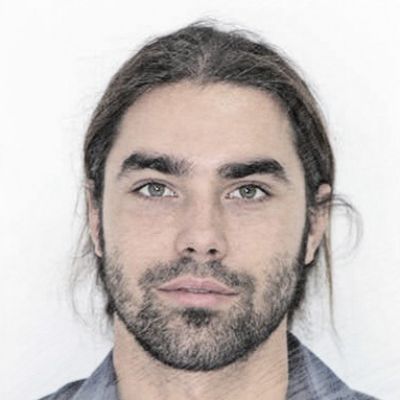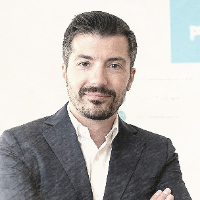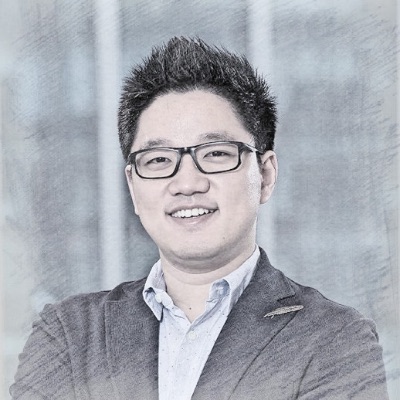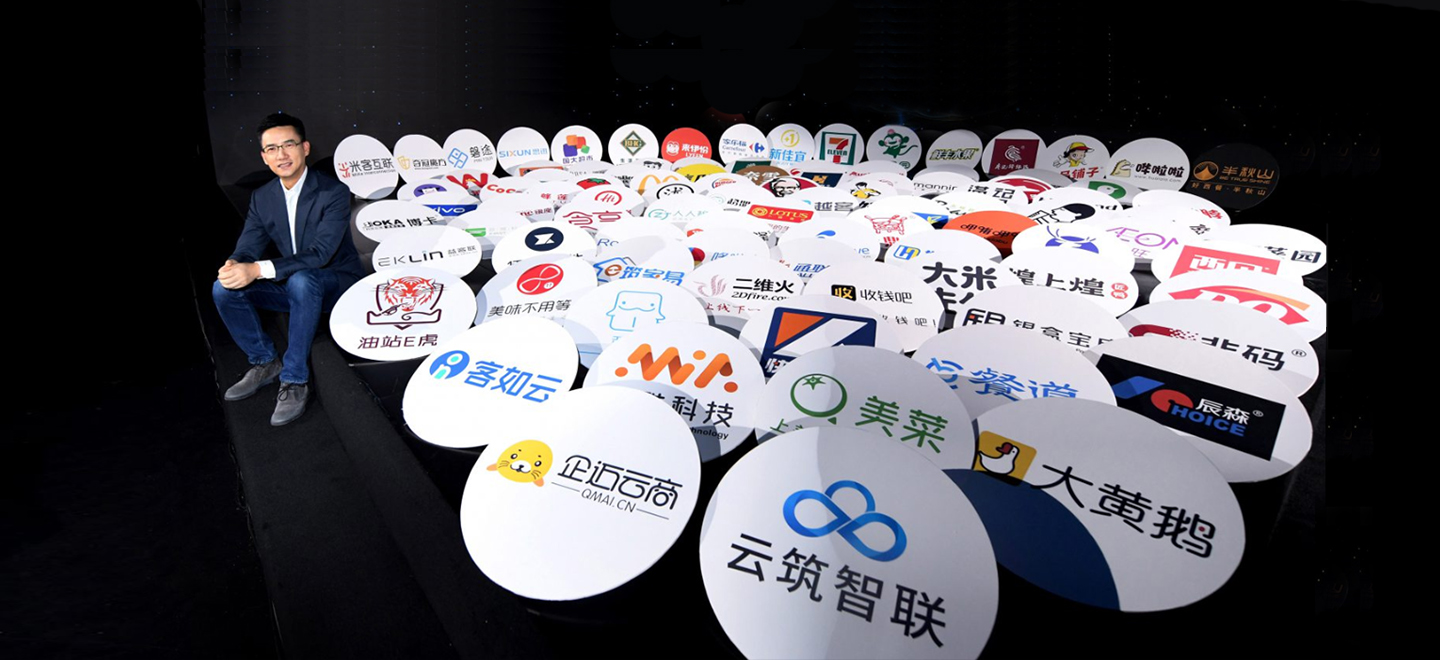Wechat Work
-
DATABASE (232)
-
ARTICLES (495)
Co-founder and CIO of Waynabox
Ferran Blanché majored in Aeronautical Engineering at Universitat Politècnica de Catalunya (UPC) in 2014. He completed an MBA course on Air Transportation at the Aeronautical Business School ITAérea in 2013. He also helped ITAérea to launch courses in Latin America and Asia.Ferran Blanché is a certified SCRUM product owner. Agile and SCRUM work strategies were implemented in Waynabox, leading to a 50% improvement in SEO organic traffic. Blanché is now a board member and chief product officer for Waynabox. He has also just started a Computer Engineering degree at Universitat Oberta de Catalunya in 2018.
Ferran Blanché majored in Aeronautical Engineering at Universitat Politècnica de Catalunya (UPC) in 2014. He completed an MBA course on Air Transportation at the Aeronautical Business School ITAérea in 2013. He also helped ITAérea to launch courses in Latin America and Asia.Ferran Blanché is a certified SCRUM product owner. Agile and SCRUM work strategies were implemented in Waynabox, leading to a 50% improvement in SEO organic traffic. Blanché is now a board member and chief product officer for Waynabox. He has also just started a Computer Engineering degree at Universitat Oberta de Catalunya in 2018.
Found and CEO of Mars Rabbit
With significant work experience in the FMCG industry, Nie believes there is huge potential in combining offline retail with internet technologies. In 2013, he came up with an idea to design a smart shopping trolley for supermarkets but was unable to attract investors. Later, Nie formed a team to develop a grocery delivery app, which, due to few orders and high costs, failed in 2015. During this period, he helped Beijing Hualian Group, one of China's largest operators of supermarkets and department stores, draw up its O2O business strategy. In 2016, Nie founded Mars Rabbit.
With significant work experience in the FMCG industry, Nie believes there is huge potential in combining offline retail with internet technologies. In 2013, he came up with an idea to design a smart shopping trolley for supermarkets but was unable to attract investors. Later, Nie formed a team to develop a grocery delivery app, which, due to few orders and high costs, failed in 2015. During this period, he helped Beijing Hualian Group, one of China's largest operators of supermarkets and department stores, draw up its O2O business strategy. In 2016, Nie founded Mars Rabbit.
CEO and Co-founder of Tuvalum
Alejandro Pons Ballester is a young entrepreneur and public speaker. In 2013, Pons worked for a few months as a trainee engineer at a Jamaican company in Kingston, while reading a degree in Industrial Engineering Management at the Polytechnic University of Valencia (UPV) . He also gained some work experience as a community officer at NGO Engineering Without Borders (EWB) in 2011. After his graduation in 2014, he decided to become an entrepreneur and co-founded Tuvalum, a web marketplace to buy and sell used bikes and accessories. He is currently the company’s CEO.
Alejandro Pons Ballester is a young entrepreneur and public speaker. In 2013, Pons worked for a few months as a trainee engineer at a Jamaican company in Kingston, while reading a degree in Industrial Engineering Management at the Polytechnic University of Valencia (UPV) . He also gained some work experience as a community officer at NGO Engineering Without Borders (EWB) in 2011. After his graduation in 2014, he decided to become an entrepreneur and co-founded Tuvalum, a web marketplace to buy and sell used bikes and accessories. He is currently the company’s CEO.
CMO and Co-founder of Tuvalum
In October 2014, Ismael Labrador became the CMO and co-founder of Tuvalum, a web marketplace for second-hand bikes and accessories. Over the years, he has gained a wide range of work experience in e-commerce, inbound marketing, product management, data-driven and customer-centered analytics. The journalism graduate has also specialized in social media and community management in collaboration with renowned digital agencies in Spain. Currently based in Valencia, Ismael is also a mentor and advisor at various business schools and incubators like Demium Startups that is also an investor in Tuvalum.
In October 2014, Ismael Labrador became the CMO and co-founder of Tuvalum, a web marketplace for second-hand bikes and accessories. Over the years, he has gained a wide range of work experience in e-commerce, inbound marketing, product management, data-driven and customer-centered analytics. The journalism graduate has also specialized in social media and community management in collaboration with renowned digital agencies in Spain. Currently based in Valencia, Ismael is also a mentor and advisor at various business schools and incubators like Demium Startups that is also an investor in Tuvalum.
Co-founder of DuduBus
A graduate of South China University of Technology, Lin Zhongjie started a firm even while he was in university, which used mathematical models to provide data analysis services to over 20 businesses. Upon graduation, he worked for China Mobile. In 2014, he started another company to work on equity-based crowdfunding for dietary and entertainment businesses and served as its COO. In 2015, he co-founded DuduBus, where he is now mainly in charge of the shared-car business PonyCar, which was incubated by DuduBus.
A graduate of South China University of Technology, Lin Zhongjie started a firm even while he was in university, which used mathematical models to provide data analysis services to over 20 businesses. Upon graduation, he worked for China Mobile. In 2014, he started another company to work on equity-based crowdfunding for dietary and entertainment businesses and served as its COO. In 2015, he co-founded DuduBus, where he is now mainly in charge of the shared-car business PonyCar, which was incubated by DuduBus.
Co-founder and CEO of Advotics
In 2009 Boris Sanjaya graduated in Industrial and System Engineering at the University of Washington, USA. He worked for one year as an intern at Boeing Commercial Airplanes in Seattle. He worked as a business analyst at Amazon for four months before joining a Distribution Management Program at General Electric in 2010. He left GE and returned to Indonesia to work as a consultant for BCG in 2012. Together with Hendi Chandi, Boris co-founded telecoms startup Kokatto in 2014. He later left BCG in 2016 to join Hendi to establish PT Advotics Teknologi Global as CEO.
In 2009 Boris Sanjaya graduated in Industrial and System Engineering at the University of Washington, USA. He worked for one year as an intern at Boeing Commercial Airplanes in Seattle. He worked as a business analyst at Amazon for four months before joining a Distribution Management Program at General Electric in 2010. He left GE and returned to Indonesia to work as a consultant for BCG in 2012. Together with Hendi Chandi, Boris co-founded telecoms startup Kokatto in 2014. He later left BCG in 2016 to join Hendi to establish PT Advotics Teknologi Global as CEO.
Co-founder and CTO of Feedloop
Software engineer Ronaldi Kurniawan was the only Android developer at YesBoss, an Indonesian virtual assistant startup. The Computer Science graduate from Universitas Bina Nusantara went on to work at financial product comparison website Cermati after YesBoss became inactive in 2016. YesBoss was later transformed into Kata.ai.Ronaldi had also worked at Thailand-based IT consultancy firm TN Corporation before returning to Indonesia to join Go-Jek. In May 2019, he left Go-Jek to team up again with Kata.ai co-founder Ahmad Rizqi Meydiarso to establish brand campaign builder startup Feedloop.
Software engineer Ronaldi Kurniawan was the only Android developer at YesBoss, an Indonesian virtual assistant startup. The Computer Science graduate from Universitas Bina Nusantara went on to work at financial product comparison website Cermati after YesBoss became inactive in 2016. YesBoss was later transformed into Kata.ai.Ronaldi had also worked at Thailand-based IT consultancy firm TN Corporation before returning to Indonesia to join Go-Jek. In May 2019, he left Go-Jek to team up again with Kata.ai co-founder Ahmad Rizqi Meydiarso to establish brand campaign builder startup Feedloop.
Co-founder and CEO of Line Health
Coding since he was 15, Diogo Ortega worked as a freelance software developer while reading a business degree at the University of London. He had previously studied Audiovisual and Multimedia Technologies at the Polytechnic Institute of Lisbon.Ortega worked for six years at TAP Air Portugal until 2014 when he co-founded Line Health as CEO. He was the CEO. The healthtech was dissolved in 2018 and he eventually moved to the US to work for WW (formerly Weight Watchers) as a product manager. Currently based in San Francisco, he is working as a product manager at Google.
Coding since he was 15, Diogo Ortega worked as a freelance software developer while reading a business degree at the University of London. He had previously studied Audiovisual and Multimedia Technologies at the Polytechnic Institute of Lisbon.Ortega worked for six years at TAP Air Portugal until 2014 when he co-founded Line Health as CEO. He was the CEO. The healthtech was dissolved in 2018 and he eventually moved to the US to work for WW (formerly Weight Watchers) as a product manager. Currently based in San Francisco, he is working as a product manager at Google.
Co-founder and Chief Credit Officer of Akseleran
Christopher Gultom worked as a consultant for four years before establishing P2P lending firm Akseleran. In 2013, after graduating with a Bachelor's in Economics from Universitas Gadjah Mada, he started work at Arghajata Consulting as an associate. He left Arghajata in 2015 and joined AJCapital Advisory as a senior consultant. When he and fellow co-founders started developing Akseleran in 2016, he took on the role as CFO. However, after launching Akseleran and leaving AJCapital in April 2017, he became Akseleran's Chief Investment Officer while Mikhail Tambunan stepped into the CFO role. In September 2017, he became Akseleran's Chief Credit Officer.
Christopher Gultom worked as a consultant for four years before establishing P2P lending firm Akseleran. In 2013, after graduating with a Bachelor's in Economics from Universitas Gadjah Mada, he started work at Arghajata Consulting as an associate. He left Arghajata in 2015 and joined AJCapital Advisory as a senior consultant. When he and fellow co-founders started developing Akseleran in 2016, he took on the role as CFO. However, after launching Akseleran and leaving AJCapital in April 2017, he became Akseleran's Chief Investment Officer while Mikhail Tambunan stepped into the CFO role. In September 2017, he became Akseleran's Chief Credit Officer.
Co-founder and CTO of Akseleran
Rassel Pratomo is a software and web engineer with over eight years of experience. He started work in 2011 as a network engineer at Artha Mitra Interdata, a solutions integrator company. In the following years, he worked at various companies and spent the longest time at AppsFoundry developing web services and payment gateway systems. In 2016, he joined Ivan Tambunan, William Tambunan and Christopher Gultom in developing Akseleran, an equity crowdlending startup that would later become a P2P productive lending platform. After joining as technical lead, he later became CTO of Akseleran in 2017, a little after Akseleran launched its service.
Rassel Pratomo is a software and web engineer with over eight years of experience. He started work in 2011 as a network engineer at Artha Mitra Interdata, a solutions integrator company. In the following years, he worked at various companies and spent the longest time at AppsFoundry developing web services and payment gateway systems. In 2016, he joined Ivan Tambunan, William Tambunan and Christopher Gultom in developing Akseleran, an equity crowdlending startup that would later become a P2P productive lending platform. After joining as technical lead, he later became CTO of Akseleran in 2017, a little after Akseleran launched its service.
Co-founder, CEO of Consumers Trust
Pedro Lourenço is the Portuguese co-founder and CEO of Consumers Trust, the company behind consumer complaints platform Portal da Queixa, founded in 2009. Since 2019, he has also been European Consumer Rights Ambassador at the European Commission, a position he was selected for thanks to his work at Consumers Trust. He is also co-founder and CEO at digital agency Megaklique Multimedia, and until 2015 was a co-founder of creative and innovation association Mexe-te. He holds a degree in Graphic Design, lives in Porto and is married to Consumers Trust co-founder Sónia Lage Lourenço.
Pedro Lourenço is the Portuguese co-founder and CEO of Consumers Trust, the company behind consumer complaints platform Portal da Queixa, founded in 2009. Since 2019, he has also been European Consumer Rights Ambassador at the European Commission, a position he was selected for thanks to his work at Consumers Trust. He is also co-founder and CEO at digital agency Megaklique Multimedia, and until 2015 was a co-founder of creative and innovation association Mexe-te. He holds a degree in Graphic Design, lives in Porto and is married to Consumers Trust co-founder Sónia Lage Lourenço.
CEO and Founder of Smile Formula
Sam Xu (Xu Yinglin) holds a bachelor's in Petroleum Engineering from Texas A&M University. After graduation, he joined British Petroleum in 2010 as a petroleum engineer and worked for three years in Houston before moving to energy investment from 2013 to 2017, working for KLR Group and CohnReznick Capital. He made it to the Forbes 30 Under 30 list in 2017 for his work in the energy field. In 2017, Xu enrolled in the Harvard Business School and obtained his MBA in 2019. In July 2019, he founded Smile Formula and has since served as its CEO.
Sam Xu (Xu Yinglin) holds a bachelor's in Petroleum Engineering from Texas A&M University. After graduation, he joined British Petroleum in 2010 as a petroleum engineer and worked for three years in Houston before moving to energy investment from 2013 to 2017, working for KLR Group and CohnReznick Capital. He made it to the Forbes 30 Under 30 list in 2017 for his work in the energy field. In 2017, Xu enrolled in the Harvard Business School and obtained his MBA in 2019. In July 2019, he founded Smile Formula and has since served as its CEO.
CEO and Founder of Modoo
Ma Jiliang graduated from University of Wisconsin-Madison in 2013 with a degree in Industrial and System Engineering. He also has a degree in Applied Mathematics. While studying, Ma had internship roles as a lab and program manager with companies in Suzhou, China.In 2012, he started working as a program manager at AI startup Mobvoi in Beijing. After his graduation, he continued to work at Mobvoi until 2014. He founded medtech Modoo as CEO in 2015. He wanted to produce a more effective and safer fetal-monitoring device that can be used by pregnant women at home.
Ma Jiliang graduated from University of Wisconsin-Madison in 2013 with a degree in Industrial and System Engineering. He also has a degree in Applied Mathematics. While studying, Ma had internship roles as a lab and program manager with companies in Suzhou, China.In 2012, he started working as a program manager at AI startup Mobvoi in Beijing. After his graduation, he continued to work at Mobvoi until 2014. He founded medtech Modoo as CEO in 2015. He wanted to produce a more effective and safer fetal-monitoring device that can be used by pregnant women at home.
Head of US Business Development and co-founder of Zipline International
Will Hetzler graduated from Harvard in 2009 as an economist. He worked as a consultant for Oliver Wyman for over three years, advising Fortune 500 aviation companies on engine maintenance, technical sourcing, supply chain and risk management.In 2014, he co-founded Zipline International in Silicon Valley to make drones to deliver critical medical supplies to remote parts of the world. He led the company’s work in Africa and established Zipline’s partnership with the Government of Rwanda. In 2018, he became the head of business development for the US and Canada.
Will Hetzler graduated from Harvard in 2009 as an economist. He worked as a consultant for Oliver Wyman for over three years, advising Fortune 500 aviation companies on engine maintenance, technical sourcing, supply chain and risk management.In 2014, he co-founded Zipline International in Silicon Valley to make drones to deliver critical medical supplies to remote parts of the world. He led the company’s work in Africa and established Zipline’s partnership with the Government of Rwanda. In 2018, he became the head of business development for the US and Canada.
Founder and CEO of Amartha
After graduating from Institut Teknologi Bandung with a degree in business, Andi Taufan started work on palm oil projects for IBM, traveling around Indonesia and meeting local farmers who were struggling to get small loans for their businesses.He left IBM and started Lembaga Keuangan Mikro (Micro-Finance Institution) to help rural business owners in 2010. Armed with a master’s in Public Administration from Harvard University in 2016, Andi managed to secure VC funds and transformed the original microloans co-operative into PT Amartha Micro Fintek, a P2P micro-lending platform.
After graduating from Institut Teknologi Bandung with a degree in business, Andi Taufan started work on palm oil projects for IBM, traveling around Indonesia and meeting local farmers who were struggling to get small loans for their businesses.He left IBM and started Lembaga Keuangan Mikro (Micro-Finance Institution) to help rural business owners in 2010. Armed with a master’s in Public Administration from Harvard University in 2016, Andi managed to secure VC funds and transformed the original microloans co-operative into PT Amartha Micro Fintek, a P2P micro-lending platform.
Allen Zhang: Father of WeChat and its string of innovations
Get to know the man behind the app in every Chinese user's smartphone
Worktile sells an easier, more efficient approach to teamwork
Employees no longer have to switch between different apps to complete projects, thanks to this collaborative SaaS for enterprises
Haoyiku makes it possible to offer genuine products at lower prices
When e-commerce is combined with social media, everybody wins
QinLin Tech gets advertisers to pay for your local security systems
Besides keeping residents safe from intruders, QinLin’s smart community business model also offers essential home services, social activities and group-buying discounts
The summer LinkedIn got pummeled in China
Or how the startup Maimai cracked Chinese professional networking
Get.AI: Using artificial intelligence to help humans write more efficiently
Writing productivity tool Get.AI automates mundane tasks, such as tracking the latest trending topics and speeding up research, improving writers' efficiency by as much as 70%
In this shipping container, you can work out and save money
By eliminating the need to pay for an expensive gym membership, ParkBox is good news for gym buffs
This Tencent-backed startup helps content creators make real money with their own e-shops in WeChat
Xiaoe Tech: Capitalizing on China’s pay-for-knowledge fever
In just two years, this startup has helped its clients sell RMB 2.2 billion worth of knowledge-based content online
Du'Anyam: Empowering rural women to work independently and learn financial planning skills
Du’Anyam had to cancel bulk orders to survive the Covid-19 downturn, pivoting to B2C online sales, until the tourism and hospitality sectors recover
This app lets you show off your cat on social media
Is Meowcard the next big thing or a flash in the pan?
Despite early promise, China's on-demand bus services hit potholes on the road to profit
High costs – not a lack of customers – have forced promising on-demand bus service startups like DuduBus to shift their focus to corporate shuttle services
"Spot" your friends, live chat and share music with this social mapping app
Spot, a new challenger to China's WeChat, is using pop-up song lyrics to entice youths to live chat and play games
Xiangwushuo’s platform finds a new home for secondhand goods
This WeChat mini program doesn’t yet have a monetization strategy, but has still received over US$110 million in funding in one year
Alipay opens its platform to speed up digitalization of Chinese service providers amid Covid-19
As Alipay continues to battle WeChat for super-app supremacy, it's created a stronghold in China’s services industry, where 80% of businesses still operate under brick-and-mortar models
Sorry, we couldn’t find any matches for“Wechat Work”.





































